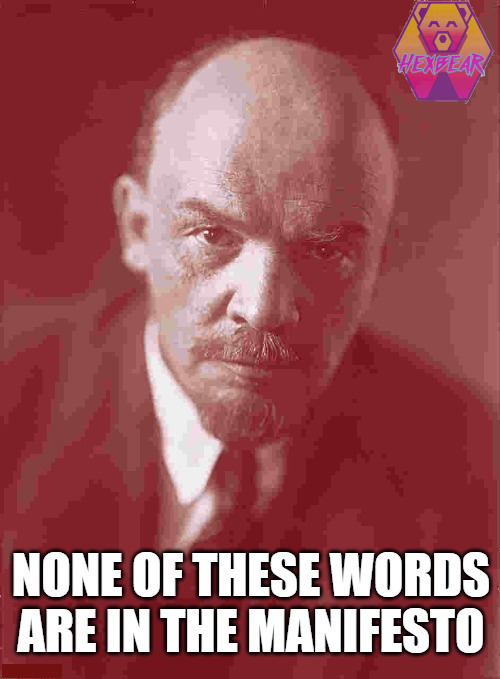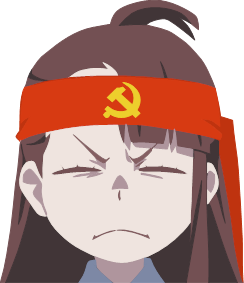Disclaimer; I’m never going to watch or read the rest of Attack on Titan. I think it’s a gross, misanthropic story. So if I’m completely wrong about the conclusion let me know n the comments
Since “media literacy” and “How could you say my blorbo is a fascist?” are constant and inescapable on the net, I was once again drawn in to the “Is AoT fascist?” discourse.
I stopped watching AoT during the first season because it’s a story of a bunch of valiant heroes grimly marching to their deaths in a war of annihilation against a teeming swarm of sub-humans who exist for no other purpose than to crush the light of civilization in an orgy of mindless violence.
Which is to say, the straightest possible portrayal of the fascist world view.
But many in the discourse argue that this isn’t fair, the author clearly shows that the protagonist is the bad guy, people are dumb and media illiterate. Well, I don’t want to watch four seasons of gorn just to weigh in on weird anime discourse, so let’s just look at a summary of the conclusion of the story.
Let’s see… minority with tainted blood who once ruled the world with an iron fist gains control over superweapons and immediately uses them to exterminate all of pure blooded humanity, even though he didn’t have to, as human history is a zero-sum clash of civilizations in which there is no possible alternative but an inevitable war of annihilation between those of pure blood and those of tainted blood. Also apparently The Jews The Marleyan Royal Family secretly set the whole thing in motion.
No fascism detected! What a relief! It’s a good thing the author expressed his view that racial war of annihilation is the only possible conclusion to the inevitable clash of civilizations! I was afraid he’d look directly at the camera and say “Everything that Hitler believed is correct and I have written a story reflecting that”.
Like, seriously, the story starts with the Jews Eldians engaged in an auto-cannibalistic war of annihilation, and the story ends with the protagonist, once noble and heroic, revealing his true Jewish Eldian nature by annihilating humanity for basically no reason. “Eren is the bad guy!” Yeah no shit, that’s exactly what the author said; The Jew cannot overcome his nature and will inevitably destroy the world no matter what. He set up a story where we sympathize with the hero, and then in the end the hero is shown to have inevitably turned in to a monster as the power of his tainted blood leads him to destroy real humans. It’s Race Realism: The Motion Picture
Or maybe I’m totally wrong. idk, because I don’t want to watch 40 hours of miserably nihilist murder porn written by someone who pretty obviously hates humanity.
Final thought; Isayama is Zach Snyder if Zach Snyder hated humanity.
For my next trick I will explain why Fullmetal Alchemist; Brotherhood is apologia for the crimes of Imperial Japan
Edit: I have observed that a lot of people are assessing AoT’s message based on what the characters say or do. I was recently introduced to the idea of “Diegetic Essentialism”, an emerging, often unconscious, belief among many people that media can only assessed within the context of the story, with the characters treated as though they were real people instead of puppets of the authors. Thus, “Isayama depicted all sides as miserable fascists” is considered important, rather than examining the world the author created and what that says about the author’s beliefs about humanity and life.
Here’s the post that introduced me to Diegetic Essentialism. From our buds over at /r/Sigmarxism, of course. I’d been struggling to articulate something I saw for a long time and this gave me a name for what I had seen.


I just recently watched a video on this subject. The video itself wasn’t very illuminating about the subject, but a pinned comment was:
Good points all.
I found a YouTube link in your comment. Here are links to the same video on alternative frontends that protect your privacy: